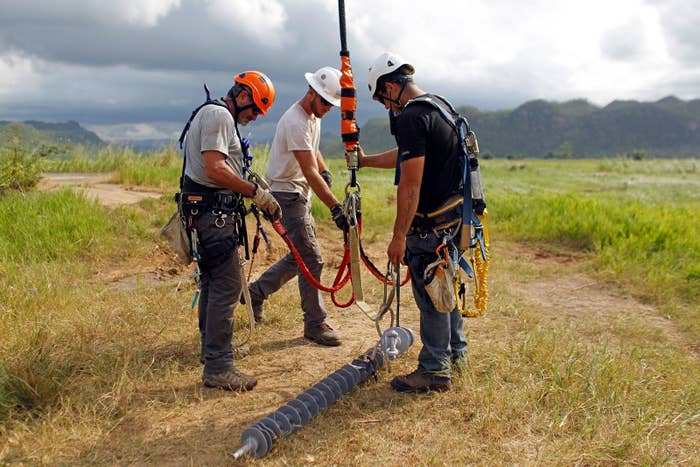
In the lead-up to two congressional hearings on Hurricane Maria disaster recovery efforts on Tuesday, documents from the Puerto Rico Electric Power Authority (PREPA) show that officials within the agency had concerns over the Whitefish Energy rebuilding contract even as it was being advanced.
PREPA canceled its controversial contract with Whitefish Energy, a small Montana firm that had been awarded a $300 million deal to rebuild part of the territory's power grid, after weather.com reported that it was granted without a competitive bidding process, prompting intense scrutiny.
The documents obtained by the House Committee on Natural Resources and released on Monday night highlight concerns over the contract internally at PREPA, as well as emails between power authority officials, Whitefish Energy, and FEMA.
In one email dated Oct. 19, PREPA official Sammy Rodriguez Ortega wrote that the agency's Office of Risk Management had not evaluated the Whitefish Energy contract or received required proof of insurance.
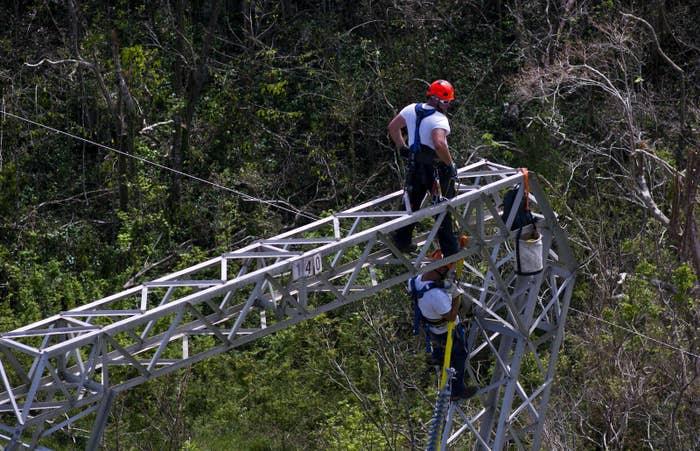
"We are conscious of the urgency of the work to be done, however, there are high risks associated with the scope of this work. In the future we recommend establishing direct and effective communication to speed up evaluations of this scope," Ortega wrote. "We have always been available to attend to any matter in which our Office can contribute. I should point out that the scope of Whitefish's work does not clearly establish whether they will work on the restoration fiber optic that runs through the ground cable of the lines."
In another email dated Oct. 12, a lawyer working for FEMA in Puerto Rico, Graciela E. Zavala-Garcia, wrote, "We have elevated this contract issue to our Headquarters Office of Chief Counsel. It has been concluded that the PREPA contract does not contain some necessary provisions."
The documents show that PREPA lawyers provided guidance on how the contract should be constructed, including termination, payment, and bonding recommendations — which were not reflected in the final contract signed by PREPA and Whitefish.
Rob Bishop, chairman of the House Committee on Natural Resources, blasted the terms of the deal as the majority of the island remains without power nearly two months later after Hurricane Maria obliterated its infrastructure.
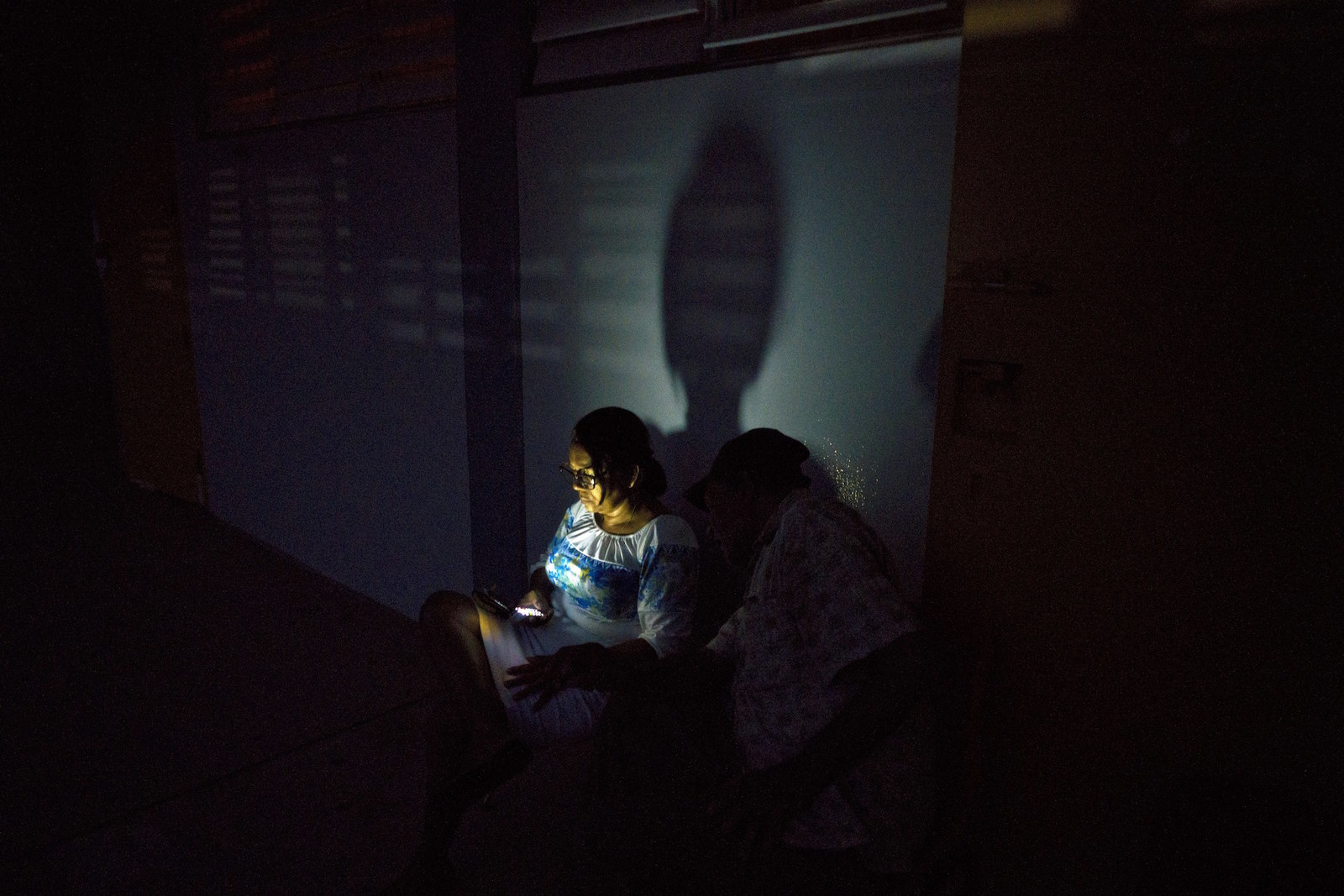
“A legacy of dysfunction (at PREPA) has created a competence deficit that threatens the Island’s ability to improve conditions for its citizens," he said in a statement. "Confidence in the utility’s ability to manage contracts and time-sensitive disaster-related infrastructure work is long gone."
Puerto Rico Gov. Ricardo Rosselló, who also testified before the Senate Committee on Energy and Natural Resources, vowed to get to the bottom of the controversy.
"We are committed to transparency and we are committed to finding out the truth in this," Rosselló said, pointing out that two investigations he ordered into the contract remain ongoing.
In a statement to BuzzFeed News, Whitefish Energy defended the contract, saying it was made FEMA-compliant after it was signed. The firm also defended the costs in the contract.
"PREPA compared Whitefish Energy’s rates to the rates in other proposals PREPA received and determined that Whitefish Energy’s rates were competitive with those other rates," the firm said.
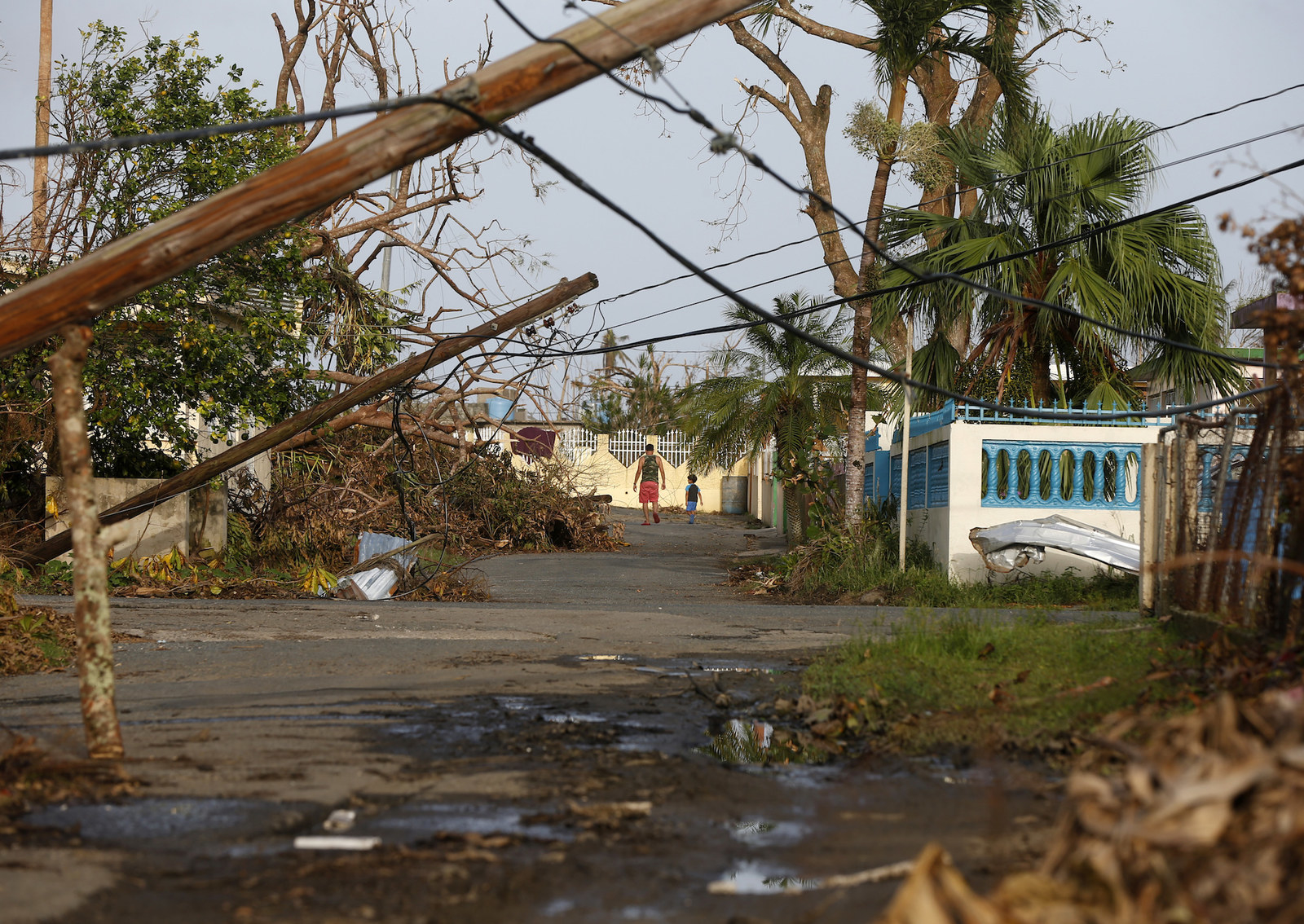
PREPA chief Ricardo Ramos, in his testimony before the Senate hearing, defended authorizing the Whitefish Energy contract.
"I chose to contract with Whitefish because my priority was securing the immediate assistance of first responders that we desperately needed," he said, adding that he did not think PREPA could fulfill the requirements of mutual aid contracts with public utility companies from other states, such as providing accommodation and supplies for workers.
"There were no logistics in Puerto Rico," he said. "There were, for the first couple of weeks, no fuel, no phone, no internet, no nothing."
Responding to a question from Sen. Lisa Murkowski on, in retrospect, it would have been better to use mutual aid contracts with public utilities instead of the private contract with Whitefish Energy, Rosselló said the decision was made partly because he expected the Army Corps of Engineers' work on the island to be more efficient.
"We chose under the understanding that things were going to pick up quickly," he said, adding that "it is public record that I was not satisfied with the initial deployment of the Corps Of Engineers."
Ramos also pointed out that the mutual aid system would not have worked for Puerto Rico because it is not part of the continental US.
"I think we need to revise mutual aid agreements in terms of PREPA. PREPA doesn't have a neighbor. The only neighbor is St Thomas ... they were devastated as well," he said.
Asked if there was a misunderstanding in Puerto Rico about the nature of mutual aid agreements, Ramos said, "What I am saying is that Puerto Rico is not part of the continental USA so that the concept of neighbor companies coming to the aid gets changed. The market basically sets the rate."
The hearings highlighted the tension between Puerto Rico's territorial government and the Financial Oversight Management Board, which was appointed by the federal government last year in response to the territory's bankruptcy crisis.
The board filed a motion in federal court arguing that under the Title III bankruptcy protection Puerto Rico filed for in May this year, they should have the authority to appoint a chief transformation officer to oversee PREPA's operations.
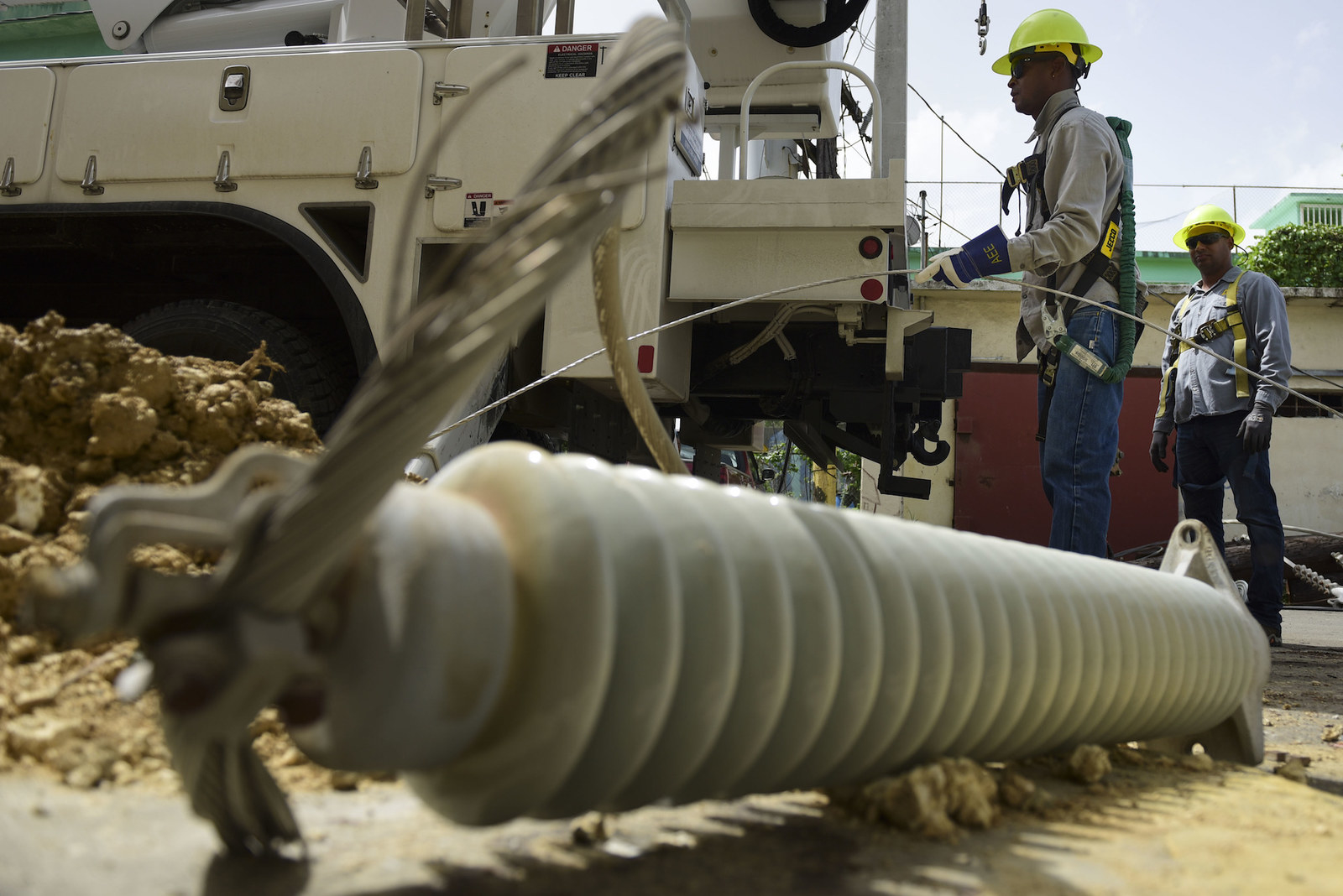
A US District judge ruled denied the oversight board's motion in a Manhattan court on Monday, but the board's executive director, Natalie Jaresko, testified during the Senate hearing that the board will continue to push to oversee PREPA, arguing that the move is necessary to ensure that the rebuilding of the electric grid is in line with Puerto Rico's long-term fiscal interests.
Rosselló said several times during both the House and Senate hearings on Tuesday that he sees that as an overreach of power by the board.
"I strongly oppose the notion [of] new administrative powers, that goes against the process of self-governing and actually the process of the board," he said during the House hearing.
In light of that tension, House Energy & Natural Resources Committee chair Rob Bishop told Rosselló, "You’re asking for an unprecedented $94 billion. That’s a lot of money. That’s not going to happen unless people are going to see some changes in the way cooperation is made, and the way that money’s going to be spent.”
Rosselló said the territorial government is cooperating with the oversight board. He also pointed to his creation of the Central Recovery & Reconstruction Office, an entity that he created through an executive order two weeks ago to oversee coordination of all disaster-related funds.
Asked again during the House hearing if he was involved in the decision to go ahead with the Whitefish Energy contract, Rosselló said, "Zero input. Let me make that very clear: zero input."
"It would have been inappropriate had the government stepped in in that process. That is the state of play. It is a public corporation," he said.
The governor is also requesting $17 billion from Congress to be used toward rebuilding the electric grid. On Monday, Rosselló requested a total of $94.4 billion, including the $17 billion, for all rebuilding efforts.
"This is our initial damage assessment. I want to state that we worked on this with third parties ... we are also including and separating what it takes to put it back together and what it takes for it to be resilient towards the future," he said.
He reiterated that all Puerto Rico is seeking is "equal treatment" compared to other hurricane-ravaged parts of the US.
"What I cannot accept is unequal treatment towards the US citizens of Puerto Rico," Rosselló said.
